Diphtheria Definition Diphtheria — infectious disease caused by

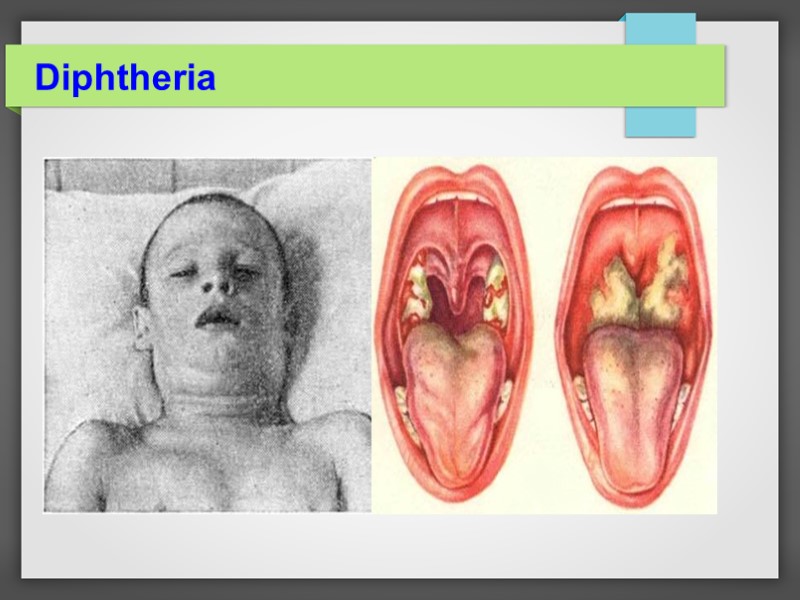
Diphtheria
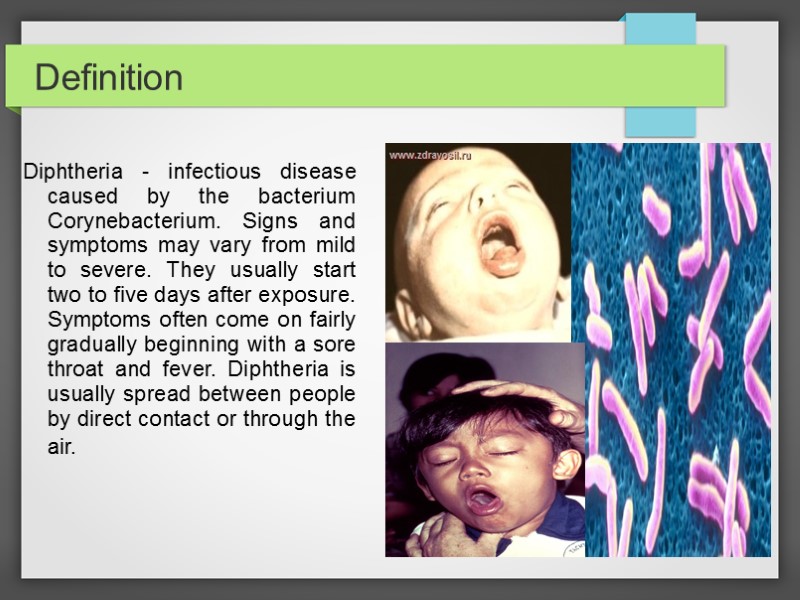
Definition Diphtheria - infectious disease caused by the bacterium Corynebacterium. Signs and symptoms may vary from mild to severe. They usually start two to five days after exposure. Symptoms often come on fairly gradually beginning with a sore throat and fever. Diphtheria is usually spread between people by direct contact or through the air.
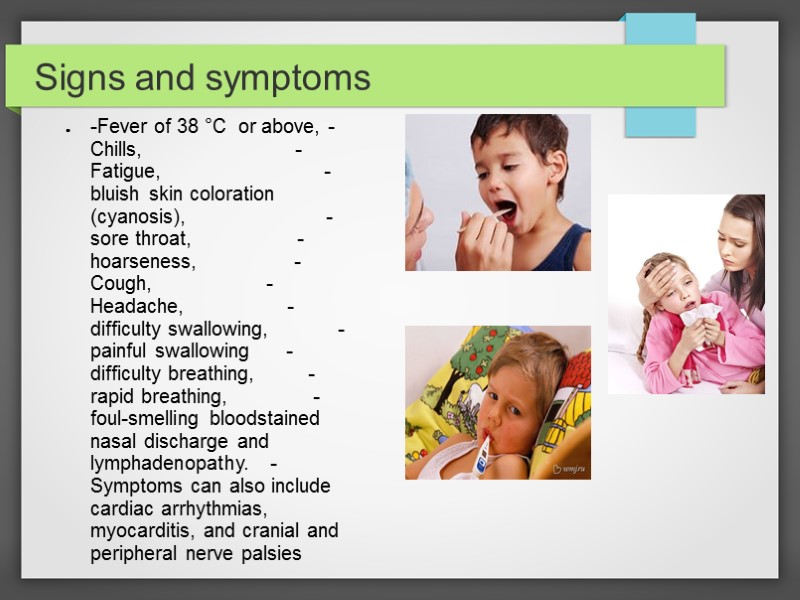
Signs and symptoms -Fever of 38 °C or above, -Chills, -Fatigue, -bluish skin coloration (cyanosis), -sore throat, -hoarseness, -Cough, -Headache, -difficulty swallowing, -painful swallowing -difficulty breathing, -rapid breathing, -foul-smelling bloodstained nasal discharge and lymphadenopathy. -Symptoms can also include cardiac arrhythmias, myocarditis, and cranial and peripheral nerve palsies
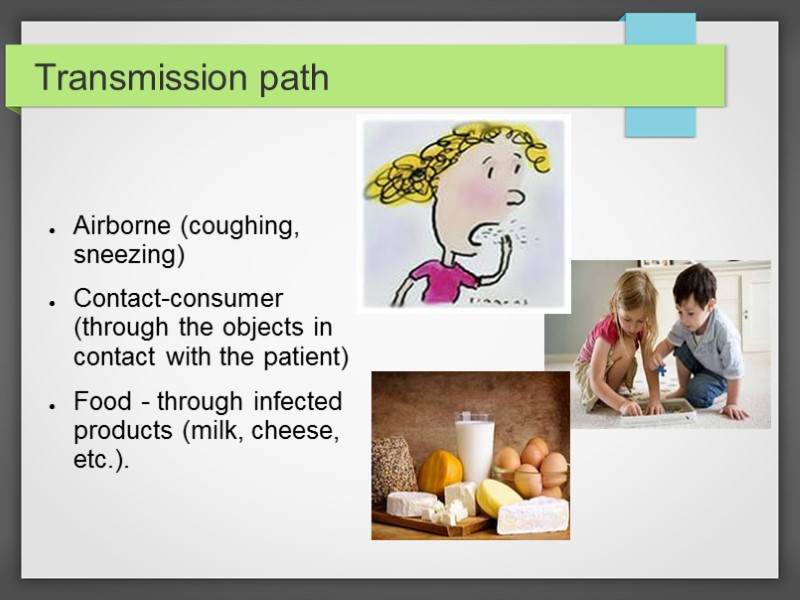
Transmission path Airborne (coughing, sneezing) Contact-consumer (through the objects in contact with the patient) Food - through infected products (milk, cheese, etc.).
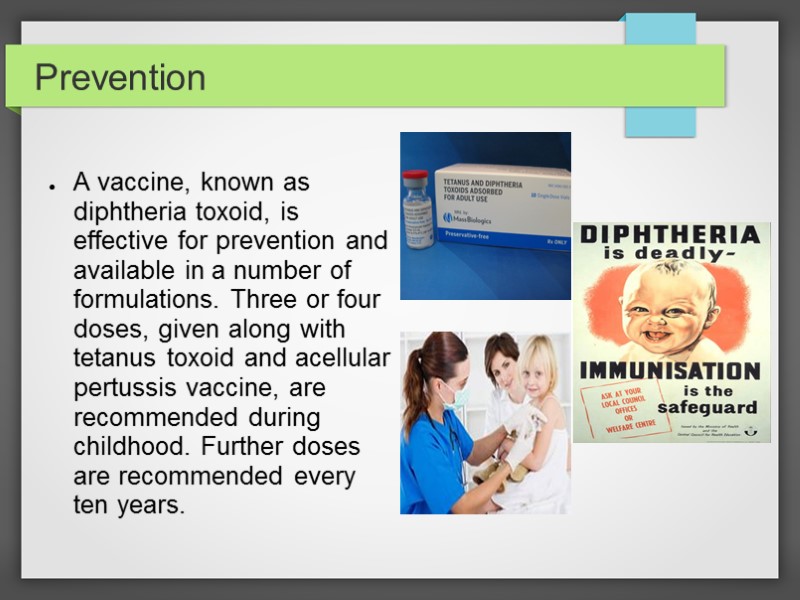
Prevention A vaccine, known as diphtheria toxoid, is effective for prevention and available in a number of formulations. Three or four doses, given along with tetanus toxoid and acellular pertussis vaccine, are recommended during childhood. Further doses are recommended every ten years.
40-difteriya.ppt
- Количество слайдов: 5

